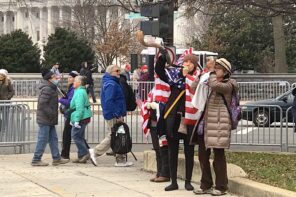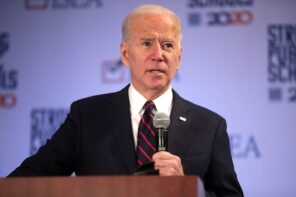The breaking news from Israel that Prime Minister Netanyahu has consulted Rabbi Ovadia Yosef about the possibility of a strike against Iran’s nuclear facilities has the pundits wondering if this a further signal of Israel’s intention to bomb Iran, or yet another bluff in a campaign to get the West to further tighten sanctions on Tehran. The Israeli government, in this view, has no intention of attacking Iran and starting another Middle East war, but it is willing to go to the brink to get the U.S. to act—and to act before the November elections.
The Rabbinic consultation story broke over the weekend when a reporter for an Orthodox Jewish website Kikar HaShabbat wrote that Netanyahu’s emissary, National Security Chief Yaakov Amidor, met with the 91-year-old Rabbi on Friday afternoon. The choice of Rabbi Yosef was telling. He is not one of the nation’s two chief Rabbis (though he once was, having served as the Sephardi Chief Rabbi), but he is the Jewish religious figure with the widest following, both among many in the Orthodox communities and among Jews of Mizrahi or Middle Eastern origins.
Yosef, the spiritual leader of the Orthodox Shas party, is also a deeply divisive figure. For secular Israeli Jews he symbolizes all that is retrograde and anti-modern in Israeli culture. His pronouncements on public issues are reminiscent of those of the late Jerry Falwell and of Rush Limbaugh.
His remarks about Palestinians and their political leadership have, in the past, embarrassed the Israeli government. In 2010 Yosef used his bully pulpit to pray for the death of Palestinian leader Mahmoud Abbas. According to the Jerusalem Post:
After mentioning the traditional New Year’s wish of “may those who hate us be finished” Yosef reportedly said that God should send a plague to Abbas and the Palestinians, and they should be finished.
The next morning Netanyahu distanced himself from the Rabbi’s remarks. “These words do not reflect the approach of Prime Minister Binyamin Netanyahu, nor the position of the government of Israel,” the Prime Minister’s Office said in a statement.
When the levees broke in New Orleans in 2005, Rabbi Yosef, in his Saturday night radio sermon, said that the fate of New Orleans’ residents was punishment for Prime Minister Ariel Sharon’s having followed the dictates of the US President in its “disengagement” from Gaza, in which the settler population was forcibly removed. Using the Hebrew name for the Gaza Settlement Bloc he claimed that:
Bush was behind the expulsion of Gush Katif, he encouraged Sharon to expel Gush Katif… We had 15,000 people expelled here [in Israel], and there in America 150,000 were expelled. It was God’s retribution… God does not short-change anyone.
Back then, in 2005, the secular Israeli reaction to Rabbi Yosef’s reading of world events was swift and sharp: Knesset Member Ronny Brison said: “What, is God cross-eyed? He metes out punishments at the wrong place? We’re sick and tired of Rabbi Ovadia’s primitive worldview. He already did his part, he can remove himself from public life.”
This week, seven years after Hurricane Katrina, Rabbi Yosef again used his Saturday night radio pulpit to make biblical pronouncements about world events. The implicit Iranian threat to Israel, he stated, was a case of Persians persecuting Jews. Invoking the Book of Esther, the Rabbi noted that “A second Haman, also from Persia, intends to do evil to us, We need to stand in prayer with all our hearts before God…. We are in danger, all of us are in danger. We have no one to rely on apart from our Father in heaven. We must pray with deep devotion.”
But Rabbi Yosef and his Israeli supporters are not alone in espousing an apocalyptic view of current and past Israeli-Iranian relations. They have an eager partner (with many followers) in Iran. And this partner, in true folie a deux fashion, is Iran’s president, who repeatedly provides powerful ‘proof’ of the Rabbi’s worldview.
A week ago Iran’s President Ahmadinejad said that, “The existence of the Zionist regime is an insult to all humanity.” A couple of days later, Iran’s Supreme Leader Ayotallah Khameni supported and confirmed that sentiment, dubbing the State of Israel “a cancerous tumor.”
Once upon a time Israeli government officials distanced themselves from outrageous pronouncements like Rabbi Yosef’s 2005 remarks about the ‘causes’ of Hurricane Katrina and his 2010 prayer for the death of the Palestinian leadership, but no longer.
Within a few days of news of the government’s consultation with Rabbi Yosef, the Israeli press and blogosphere were humming with speculation about what the Rabbi’s opinion might be. Did he give the Rabbinic equivalent of a thumbs up or thumbs down decision? Did he ask to examine the classical texts more carefully, as a great Talmudist should?
Some opponents of a strike against Iran saw a hopeful sign in Rabbi Yosef’s earlier friendship with Shimon Peres, the dovish politician who holds the largely ceremonial office of president, though the more realistic view, that Rabbi Yosef’s views are as hawkish as ever, dominates the discourse in Israel this week. Netanyahu’s jingoism and Yosef’s apocalyptic messages are a powerful combination. Let us hope that along with their ‘partners’ in Tehran they don’t manage to take us all to the brink of war—and beyond.




